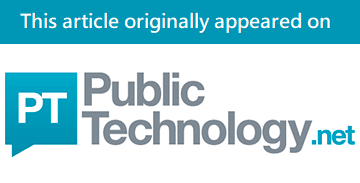The Ministry of Defence’s military tech research agency has signed a six-figure deal for specialist screening checks using open source data “to ensure we do not recruit any form of activist”.
The Defence Science and Technology Laboratory recently entered into a £100,000 contract with Agenda – which has four distinct business units, respectively providing specialised screening, as well as life science and veterinary services, and marketing support.

“Due to the nature of the work undertaken by Dstl part of the baseline checks has to be animal extremist checks,” the procurement notice said. “These checks are conducted on open-source material and is a vital part of the checks carried out to ensure we do not recruit any form of activists into Dstl.”
Operating as an executive agency of the MoD, Dstl’s remit is “providing world-class expertise and delivering cutting-edge science and technology for the benefit of the nation and allies”. This involves “supplying sensitive and specialist science and technology services for MoD and wider government”, according to the laboratory’s website.
In response to enquiries from CSW's sister title PublicTechnology, Dstl indicated that pre-employment security checks are typically required for all government jobs, and often in other parts of the wider public sector. Screening for links to animal rights activism – which the agency said is a longstanding practice – is part of a wider checking process for new hires which, due to the sensitive nature of the work conduced by Dstl, needs to adhere to a high level of security clearance.
Dedicated advice on rooting out “animal rights extremists” is included in the Baseline Personnel Security Standard (BPSS) published by the Cabinet Office Government Security Group (GSG). The policy document provides Whitehall departments and the Armed Forces with guidelines on the screening processes that should be undertaken before hiring new staff or contractors.
These specialised checks are required by “a number of government departments and agencies [that] assess themselves to be potential targets for vexatious and extreme animal-rights protests”.
“For a range of legal and practical reasons, there is no police or government database of individuals involved in extremist animal rights activities,” the BPSS adds. “However, [GSG] are aware of two commercial organisations… who can offer screening for animal rights affiliations. Both organisations gather open-source information on individuals involved in extreme and vexatious animal rights campaigns. Other providers may also be available.”
Dstl’s chosen supplier Agenda is one of the two providers – along with Huntingdon Life Sciences – that are named in the hiring guidelines.
The firm’s website state that its Animal Rights Connections Checks services “identify people with connections to animal rights activism [and] provide you with a search of our comprehensive database, featuring links to animal right groups, signature of petitions and online history”.
“Our innovative check includes illegal activities such as public order offences and engagement with animal rights activities,” it adds. “With over 25 years working in life-science and research industries, our team have the expertise and experience to help spot and prevent animal-rights activism, including insider threat.”
The company’s previous contract wins including deals to support recruitment checks for the Department for Energy Security and Net Zero, the British Business Bank, and a collection of seven UK research councils.
Sam Trendall is editor of CSW's sister title PublicTechnology, where this story first appeared